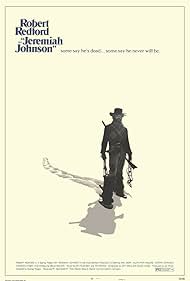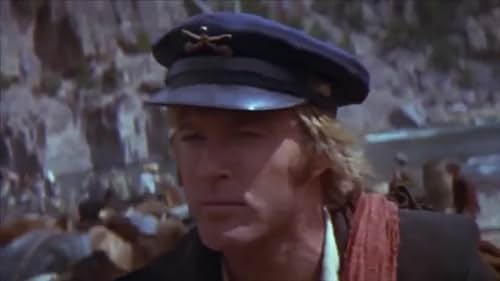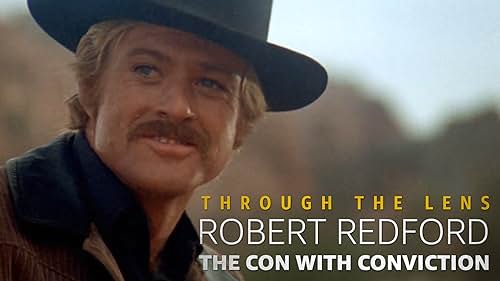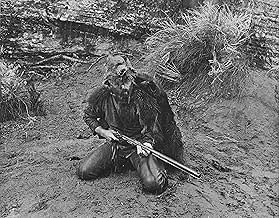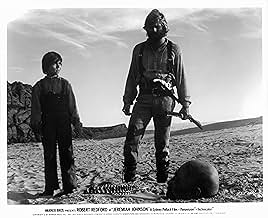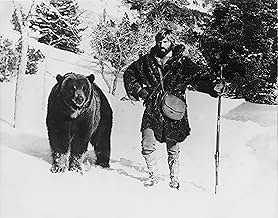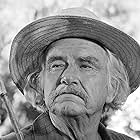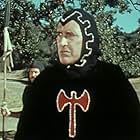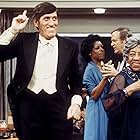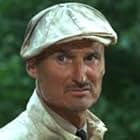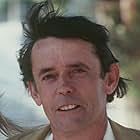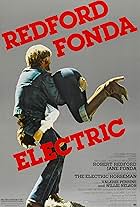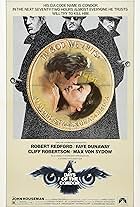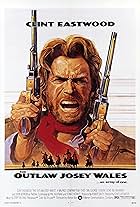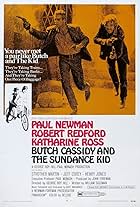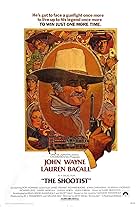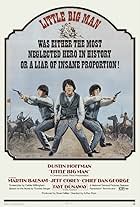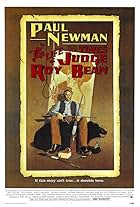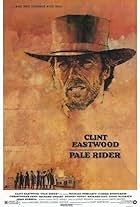A mountain man who wishes to live the life of a hermit becomes the unwilling object of a long vendetta by the Crow tribe and proves to be a match for their warriors in single combat on the e... Read allA mountain man who wishes to live the life of a hermit becomes the unwilling object of a long vendetta by the Crow tribe and proves to be a match for their warriors in single combat on the early frontier.A mountain man who wishes to live the life of a hermit becomes the unwilling object of a long vendetta by the Crow tribe and proves to be a match for their warriors in single combat on the early frontier.
- Awards
- 1 win & 1 nomination
- Paints His Shirt Red
- (as Joaquin Martinez)
- Indian
- (uncredited)
- Qualen's Daughter
- (uncredited)
Storyline
Did you know
- TriviaBased upon a real-life trapper named John Johnston, nicknamed "Crow Killer" and "Liver Eater Johnston" for his penchant for cutting out and eating the livers of Crow Indians he had killed (several Crows had murdered his wife and he swore vengeance against the entire tribe).
- GoofsThe wedding song is actually a song the Salish people sing at funerals. The producers wanted a song during the wedding, but the Salish don't have one. So the technical adviser, John Arlee, gave them three songs to choose from, and they liked "Coming Home", a death song.
- Quotes
Del Gue: I ain't never seen 'em, but my common sense tells me the Andes is foothills, and the Alps is for children to climb! Keep good care of your hair! These here is God's finest scupturings! And there ain't no laws for the brave ones! And there ain't no asylums for the crazy ones! And there ain't no churches, except for this right here! And there ain't no priests excepting the birds. By God, I are a mountain man, and I'll live 'til an arrow or a bullet finds me. And then I'll leave my bones on this great map of the magnificent...
- Alternate versionsDVD release restores the overture and the exit music which were deleted from the VHS releases.
- ConnectionsEdited into La classe américaine (1993)
As Jeremiah Johnson (Robert Redford) wanders the mountains like a fugitive stricken by disaster, a solitary figure against awe-inspiring backdrops of massive rock formations, steep ravines and expansive mesas, you can tangibly feel the film, like the hero, transcending the specific time and place and breaching out vision to become an all-encompassing spiritual journey where the individual characters - fur trappers, bear hunters or Indians - are merely the unwitting parners in a dance of death.
Some viewers may be put off by the lack of straight-forward plot, the episodic, repetitive nature of the movie or the long stretches of silence, but it's from those exact things the movie takes its power. JJ comes unto its own in those small moments of quietude, in Johnson's silent encounters with indians, in the barren, unforgiving wastes of the craggy mountains that reflect so well the psychology of characters wandering in their shadow, in the subtle, heartwarming interactions Johnson has with the Indian woman he's taken for a wife and the mute boy he's taken for a son. There's hardly a word uttered between this peculiar family the entire movie but the ways they learn to overcome the barriers that separate them is a touching sight to behold.
There is some dated montage, a corny soundtrack; how much of this will affect your enjoyment will boil down to your affinity with how cinema was in the 70's. Still, what is left is this beautiful parable of broken humans learning to be whole again. Equal parts visceral, savage and heartwarming.
- chaos-rampant
- Apr 21, 2009
- Permalink
Details
Box office
- Budget
- $3,100,000 (estimated)
- Runtime1 hour 48 minutes
- Color
- Aspect ratio
- 2.35 : 1
Contribute to this page

